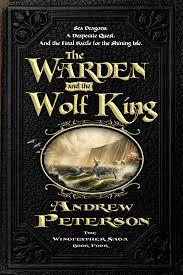At some point in the mid-to-late 1980s, I discovered my true home— a planet under a red sun. A planet called Darkover. Darkover was the brainchild of the late Marion Zimmer Bradley. It had its seeds in fantasies she wrote in her girlhood. The series became popular enough that she continued writing them all her life, and with the help of a co-author, after her death as well.
The Darkover series is, technically speaking, a sub-genre of science fiction called ‘planetary romance’. This is romance not in the modern sense of a love story. lust story or sex story, but in the older definition: “A work of fiction depicting a setting and events remote from everyday life.” In the planetary romance, the remote setting is on another planet. (Christian readers might be interested to note that C. S. Lewis’ Space Trilogy is also considered planetary romance.)
Many of the later Darkover novels were published with the word ‘fantasy’ on their spine, but the series was never fantasy except in the sense that science fiction is a subtype of fantasy. The ‘magic’ of the Darkover series is laran, which is the word for natural abilities in telepathy and telekinesis— abilities which are presented as scientifically verifiable.
Darkover is a planet you can get to without resorting to magic. It was settled when a starship out of Terra crash-landed on the way to a colony world. The survivors, with a touch of help from a mysterious humanoid race, the chieri and some hindrance from the hallucinogenic Ghost Wind, make a life for themselves on Darkover and develop a distinct culture. Since the world is metal-poor and has a fragile ecosystem, a technology based on the use of laran is developed.
In the later era of Darkover, the planet is rediscovered by the Terran Empire and incorporated into the empire, causing massive culture shock on both sides.
When I first discovered Darkover, I was a Neopagan. I’d given up on Christianity because of some uncaring people and some unanswered prayers for guidance. Through the Neopagan grapevine I heard that author Marion Zimmer Bradley was allegedly a Wiccan, though of course she couldn’t admit it in public. And so I started reading the books. The main religion of Darkover is polytheistic and thus appealing to Neopagan sensibilities. And the Free Amazons (later called Renunciates) of Darkover appealed to my emerging feminista side.
But now I’ve gotten mature. I’ve learned that ‘Question Everything’ applies to feminism. I’ve had experiences that lead me to embrace the Catholic faith and all its teachings. But the Darkover books don’t now make me cringe. In fact, there is still a place for me on Darkover.
In the book ‘Darkover Landfall’ which tells the origin story of the Terran starship crash-landing on Darkover, there is a priest, Father Valentine, of the ‘Reformed Catholic’ church. ‘Reformed Catholic’ sounds like a schismatic or break-away group (like the Protestant groups who broke away during the ‘Reformation’), but it seems like plain ordinary Catholic— the priest brought a Saint Christopher medal with him and the religion becomes known as the cristoforo faith. In one of the most recent books, written after MZB’s death, the cristoforos are demonized as anti-gay haters, but in the books written by MZB they always get credit for preserving knowledge in their monastery and for being good educators.
I think that is the genius of MZB and sci-fi writers of her era. They may have been involved in ‘progressive’ ideas, but they were writing for a mass audience and they knew it. They made room in their worlds for non-progressive character groups that weren’t necessarily villains, in order to give certain of their readers something to identify with.
Facebook Page: Cristoforos of Darkover – Marion Zimmer Bradley This is a very new page I’ve started to try to connect with fellow Darkover fans. In particular with those of us who for one reason or another appreciate the cristoforos. Since I’m sure that people like me aren’t very welcome in the standard progressive/feminista Darkover fan circles.
Don’t forget our BLOG HOP! The Saturday Spec-Fic Snippet is for writers of speculative fiction (science fiction, fantasy, horror) to share a few lines from one of our works, and to get to know one another. Read about it here: https://myantimatterlife.wordpress.com/2014/07/30/new-saturday-spec-fic-snippet-blog-hop-hosted-here-specficsnippet/














